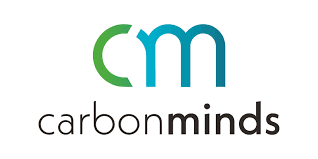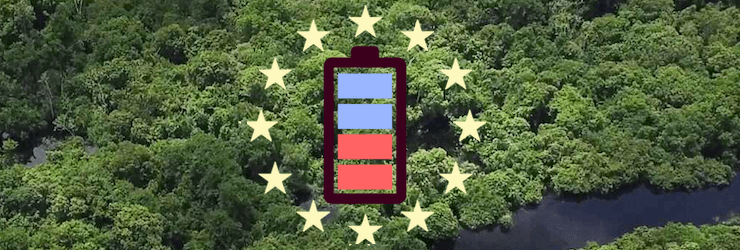In the pursuit of sustainability, Life Cycle Assessment (LCA) has emerged as a powerful tool for evaluating the environmental impact of products, processes, and organizations. However, conducting a comprehensive LCA requires a wealth of data on energy, material, and emission flows. This is where LCA databases come into play.
The Significance of Data in LCA
Data plays a pivotal role in LCA, serving as the foundation for calculating environmental impacts and identifying areas for improvement. While LCA software tools provide a structured framework for conducting assessments, the quality and availability of data are crucial for ensuring the reliability and accuracy of the results.
Primary vs. Secondary Data: Striking a Balance
LCA practitioners typically gather data from two primary sources: primary data and secondary data. Primary data refers to information collected directly from the source, such as production processes or supplier inventories. This data is often considered more accurate as it reflects the specific conditions of the system under evaluation.
However, collecting primary data can be time-consuming and costly, especially for processes that are geographically dispersed or not under direct control. This is where secondary data, sourced from LCA databases, comes in handy.
LCA Databases: A Gateway to Environmental Information
LCA databases offer a comprehensive collection of life cycle inventory (LCI) datasets on energy, material and emissions associated with a specific component, process or product. These datasets allow LCA practitioners in industry and research to fill the gaps in their own inventories. These databases provide a cost-effective and efficient way to supplement primary data gaps, ensuring the completeness of LCA studies.
If we want to be more accurate in using the expressions “LCI database” or “LCA database”, LCI databases provide Life Cycle Inventory datasets, while LCA databases include in addition Life Cycle Impact Assessments (LCIA) methods. Life Cycle Impact Assessment is a method to evaluate and increase the understanding of the potential environmental impacts of a product system across its entire life cycle. In common language the term LCA databases is used more, without having this distinction in mind.
ecoinvent: A Global Leader in LCA Databases

The ecoinvent database is a widely recognized and respected resource for LCA data. With over 20,000 LCI datasets and a global coverage, ecoinvent offers a comprehensive and up-to-date source of information for conducting LCAs.
One of the greatest benefits of the ecoinvent LCI database compared to other databases (such as the GaBi databases) lays in its transparent and traceable nature. Unlike other databases, ecoinvent offers datasets as individual unit process data, enabling detailed analysis of product life cycles. ecoinvent provides comprehensive documentation on data sources and methodologies, enhancing trust and credibility. Annual reports detail changes to the database, ensuring transparency and reliability. Moreover, ecoinvent allows for different allocation types, catering to various LCA study goals and scopes. Other databases often lack such granular data and detailed documentation. For researchers and analysts committed to robust sustainability assessments, ecoinvent's transparency and flexibility make it the preferred choice.
Carbon Minds: Specialized Expertise for Chemicals and Plastics
 Carbon Minds specializes in providing highly accurate and regionalized LCI data for chemicals and plastics. Their cm.chemicals database covers 95,000 datasets, so a vast range of chemicals and plastics, making it an ideal choice for companies operating in these industries.
Carbon Minds specializes in providing highly accurate and regionalized LCI data for chemicals and plastics. Their cm.chemicals database covers 95,000 datasets, so a vast range of chemicals and plastics, making it an ideal choice for companies operating in these industries.
It offers production and consumption mixes for bulk chemicals as well as all important technology pathways in various data packages. Data-on-demand is available for the entire selection of chemicals and plastics.
Especially beneficial for chemical companies is that the database is compliant with the new standard “Together for Sustainability” Guideline for product carbon footprint (PCF).
Moreover, Carbon Minds “Supplier Carbon Footprints” provides comprehensive and reliable carbon emission data for chemicals and plastics by region, plant and supplier and helps to reduce Scope 3 emissions.
U.S. Life Cycle Inventory (USLCI) Database
The U.S. Life Cycle Inventory (LCI) Database, developed by the National Renewable Energy Laboratory (NREL) and its partners, is a comprehensive repository of life cycle inventory data for various materials, products, and processes relevant to the United States. This database provides individual gate-to-gate, cradle-to-gate, and cradle-to-grave information on the environmental impacts associated with the entire life cycle of these entities, encompassing stages from raw material extraction to production, use, and disposal.
Choosing the Right Database for Your LCA Needs
Our LCA expert software (Umberto) and our web-based Software for Product Sustainability (iPoint Product Sustainability) work together with the database provider ecoinvent, Carbon Minds and USLCI. These databases are directly integrated into the software.
The choice of LCA database depends on the specific needs and objectives of the assessment. For general-purpose LCAs, ecoinvent is a reliable and versatile option. For specialized applications, such as chemicals and plastics, Carbon Minds offers a more targeted and accurate solution.
Data Quality: The Cornerstone of Reliable LCAs
Both ecoinvent and Carbon Minds prioritize data quality, ensuring that the information provided is transparent, traceable, and up-to-date. This commitment to data integrity contributes to the reliability of the LCA results.
Achieving Data Fit for Purpose: The Ultimate Goal
The most critical question when selecting an LCA database is whether the data aligns with the specific purpose of the assessment. LCA practitioners must carefully consider the goal and scope of the study to ensure that the chosen database meets the required level of accuracy and relevance.
In conclusion, LCA databases play a pivotal role in providing the necessary data for conducting comprehensive and meaningful Life Cycle Assessments. By leveraging the expertise of ecoinvent and Carbon Minds, organizations can gain valuable insights into their environmental performance and take informed steps towards sustainability.
Regardless of whether you choose ecoinvent or Carbon Minds, both databases are of course available in our all-in-one product sustainability software and in our LCA software for experts.
If you need further support in selecting and collecting the right data or in carrying out your LCA, our LCA Consulting Service Team is always at your disposal.




.png)

